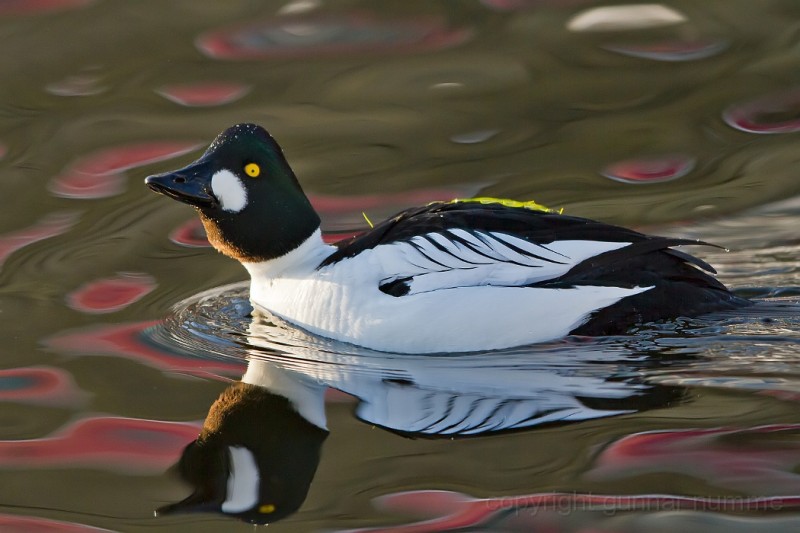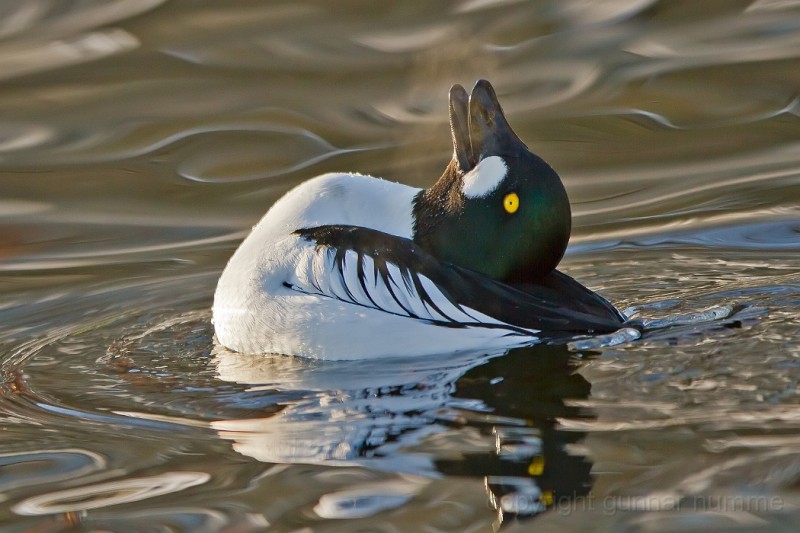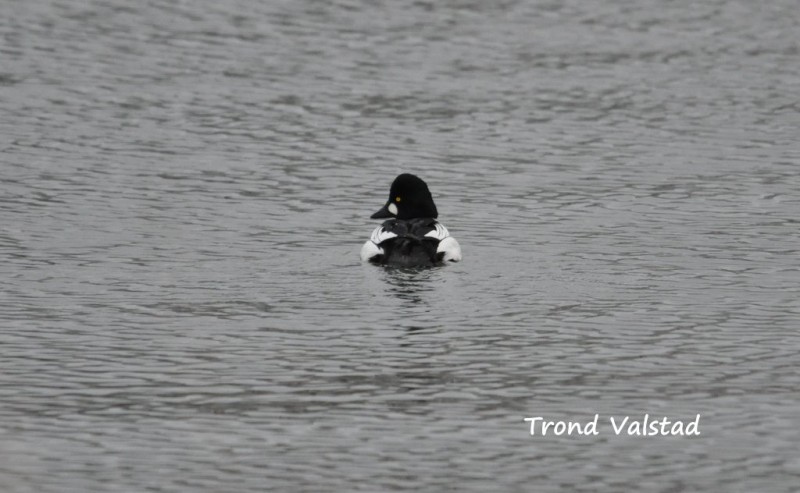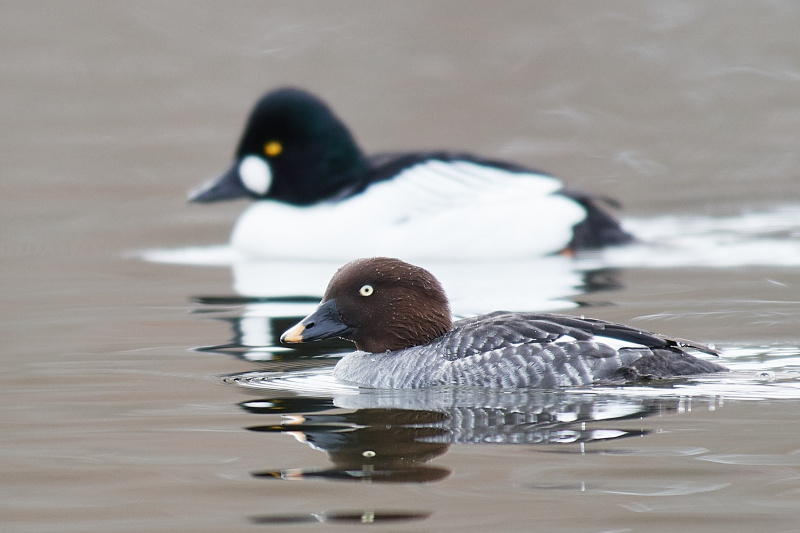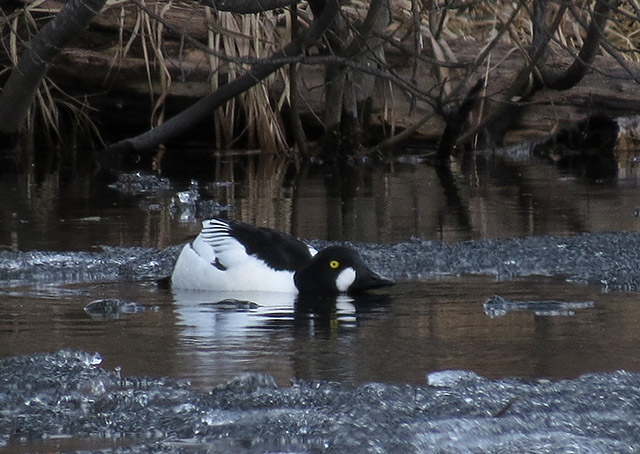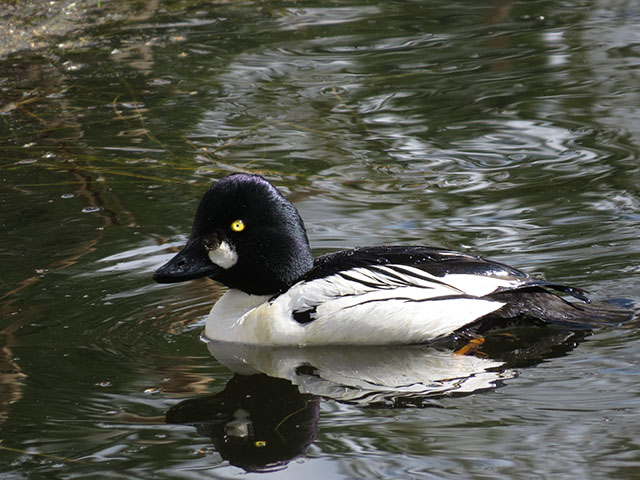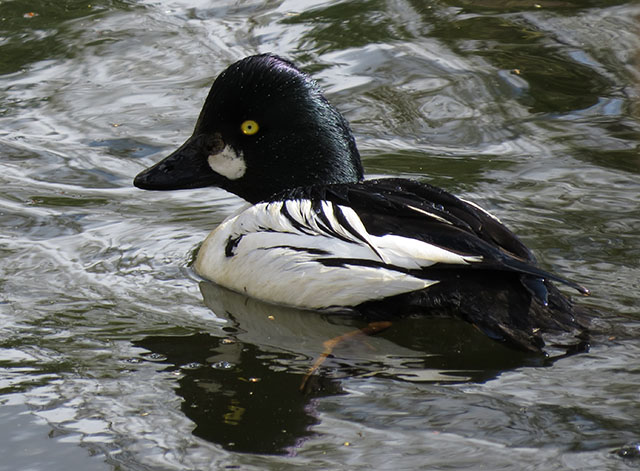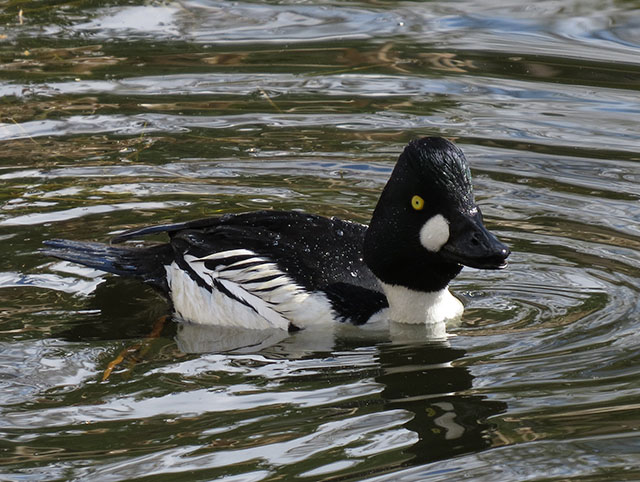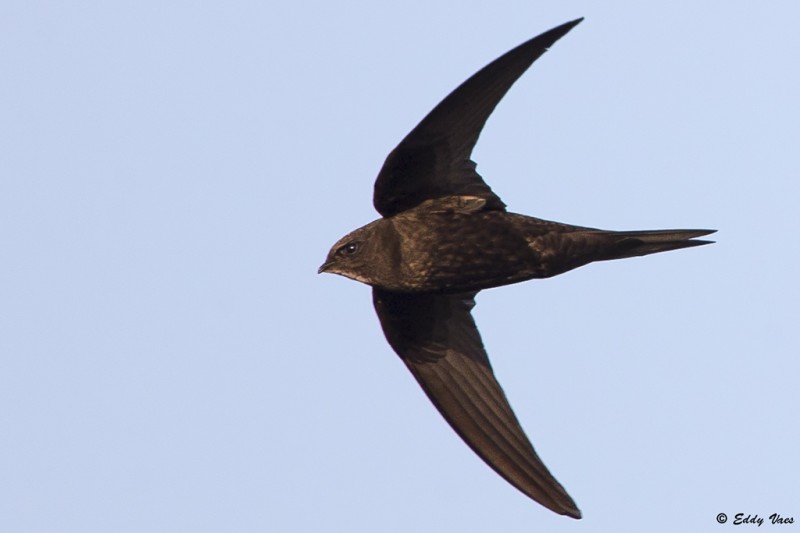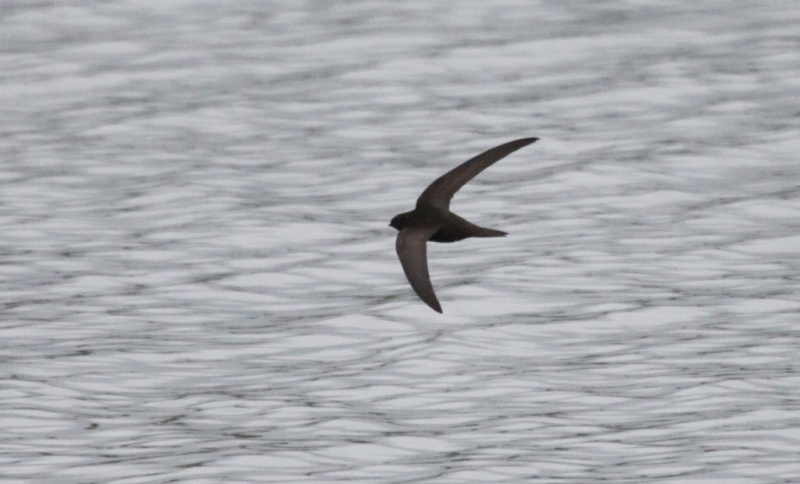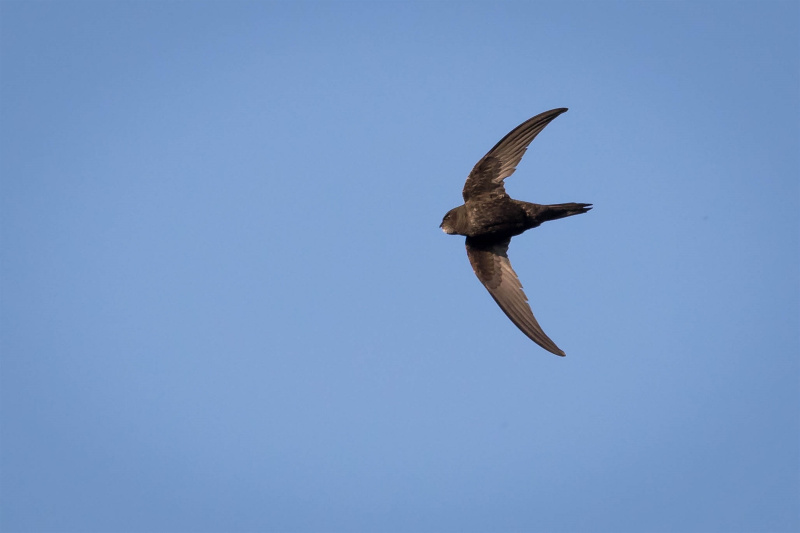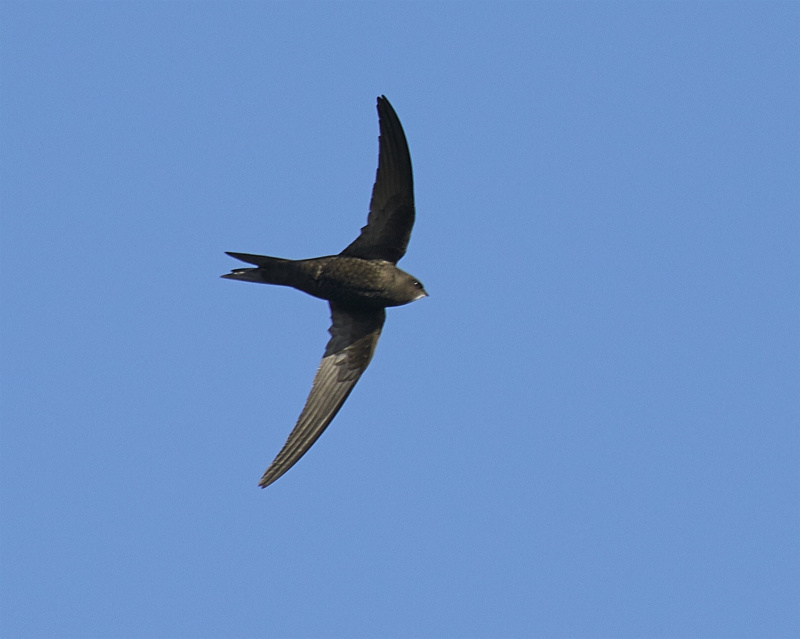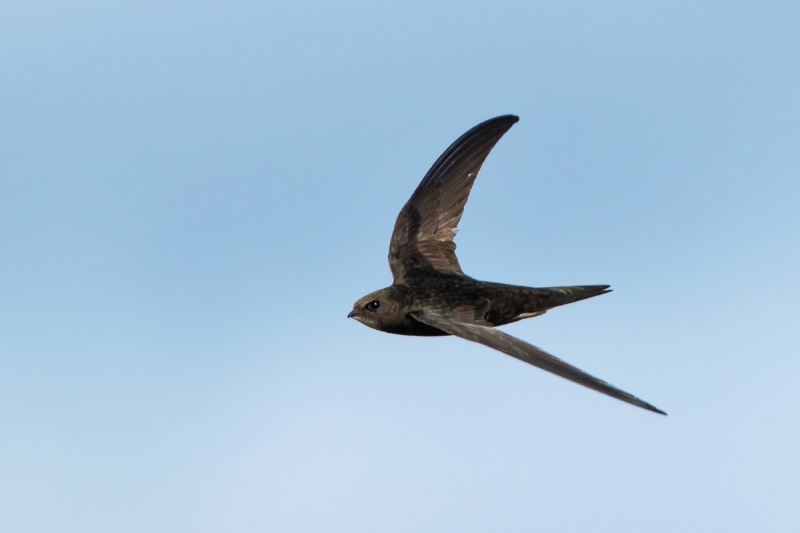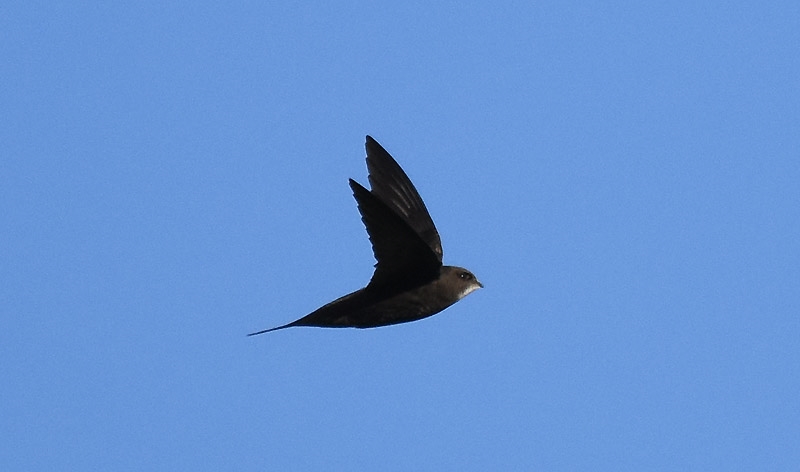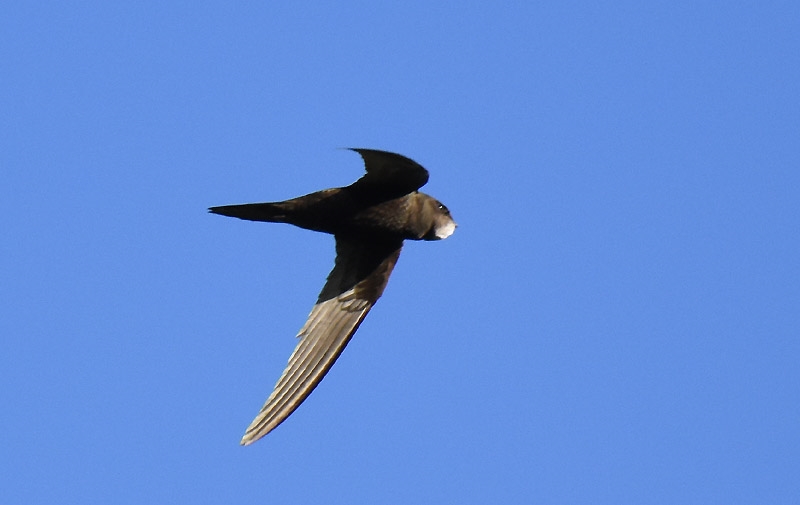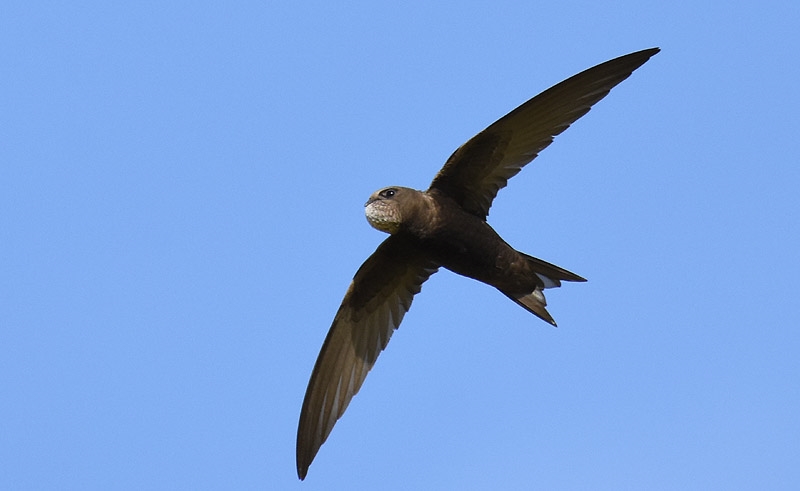Goldeneye (Bucephala clangula)
Swift (Apus apus)
Small, stocky diving duck with short bill, big triangular head and yellow eyes (dark in juveniles). Male: dark metallic green head and white patch at base of bill. Black back and tail. Neck, breast and underparts white. Female with brown head, white collar and pale underparts. White, square wing panels and dark underwing in both sexes.
Sound:Male display sound a dry nasal disyllabic "Ka-weerr". First note introductory and second longer and descending. Usually accompanied by back-throwing head motion. Female: dry harsh "aahrrrr aahrrrr aahrrrr ". Wings make a characteristic whistling sound.
Display-call male, wing noise:
Distribution:
Wikipedia: map (se also Xeno-canto below)
Ecology:Birdlife ecology
Links:
Observation.org Latest observations
Image search Flickr NB! May give other species
CCCC-photo:berniedup, Licence,Link,
Sounds:Recorded by Patrik Åberg,http://www.xeno-canto.org ,CC license
All black swift with small white throat patch. Very difficult to separate from Pallid swift and Plain Swift. Pallid Swift; brownish plumage tone (best seen against darker background), bigger throat-patch than swift, scale pattern on body more prominent, wing-tips slightly rounded, "saddle" darker than wings, and more contrast between darker outer primaries and inner. Plain Swift; throat patch smaller and more diffuse than swift, wings and body more slender, tail noticeably deeper forked.
Sound:A shrilling trill "zreeeee" of about 1 -2 seconds length, gradually rising in pitch with accentuated firs half, then falling from the middle of phrase. Often continued with a dry lower pitched "trrrrrr" before calling again. Very vocal at breeding area, and often a flock will call together. Despite being quite similar to Pallid Swift, the call is probably the best field character to separate the two. Pallid puts the stress on the ending of the call, followed by a quick fall in pitch (dynamics like moaning with a quick release). Plain Swift calls similar to Common Swift, but differs in slightly fluctuating pitch during the call, and a loss of resonance towards the ending (thinner sounding).
Song/contact call:
Distribution:
Wikipedia: map (se also Xeno-canto below)
Ecology:Birdlife ecology
Links:
Observation.org Latest observations
Image search Flickr NB! May give other species
CC
 English
English Albanian
Albanian
 Armenian
Armenian
 Bulgarian
Bulgarian
 Catalan
Catalan
 Croatian
Croatian
 Czech
Czech
 Danish
Danish
 Dutch
Dutch
 Finnish
Finnish
 French
French
 Georgian
Georgian
 German
German
 Greek
Greek
 Hungarian
Hungarian
 Italian
Italian
 Latvian
Latvian
 Lithuanian
Lithuanian
 Macedonian
Macedonian
 Norwegian
Norwegian
 Polish
Polish
 Portuguese
Portuguese
 Romanian
Romanian
 Russian
Russian
 Sami : Lule sami
Sami : Lule sami
 Sami : North sami
Sami : North sami
 Sami : South sami
Sami : South sami
 Scientific names
Scientific names
 Serbian
Serbian
 Spanish
Spanish
 Swedish
Swedish
 Ukrainian
Ukrainian


